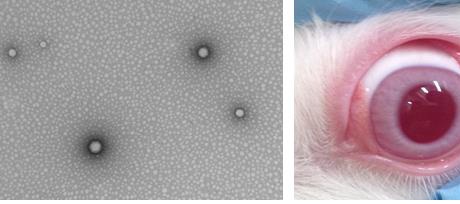
Marcelle Silva de Abreu
University of Barcelona,Spain
Title: Encapsulation of agonist PPAR- γ in polymeric nanoparticles to treat ocular inflammatory processes
Biography
Biography: Marcelle Silva de Abreu
Abstract
Peroxisome proliferator-activated receptor gamma (PPARγ) is a member of the nuclear receptor superfamily of ligand-dependent transcription factors. PPAR𛾠has been shown in numerous studies to affect the expression of proinflammatory cytokines. Pioglitazone (PGZ), a PPARγ agonist used to treat type 2 diabetes, has been reported to have responses in different inflammatory processes. The purpose of this study was the association of PGZ to poly (D,L-lactide-co-glycolide) poly(ethylene glycol) (PLGA-PEG) nanoparticles (NPs), for the treatment of ocular inflammatory disorders. NPs of PGZ were prepared by solvent displacement technique. Previously, a factorial design was carried out to determine the influence of independents variables studied. Physicochemical characterization,

biopharmaceutical behaviour and interaction drug-polymer studies were done. To evaluate ocular tolerance of the developed formulation, HET CAM and DRAIZE test were performed. In order to analyze the effectiveness of these systems, in vivo studies were executed in rabbits (male/n=6 per group), before and after induction of ocular inflammation by Sodium Arachidonate (SA). Results obtained demonstrated an adequate size of NPs for ocular administration with a sustainable releasing profile. The interaction studies of NPs-PGZ showed that within the formulation the drug remains linked to the polymer. Regarding effectiveness, it was found that these systems decrease the level of inflammation in rabbit eyes with an optimum ocular tolerance. In conclusion, PGZ-NPs showed to be suitable systems to possible treatment of inflammatory ocular diseases. Acknowledgements: Authors would like to thank CAPES (Coordination for the Improvement of Higher Education Personnel) Brazil and the Spanish Ministry of Science and Innovation grant (MAT2014-59134R) for financial support.

